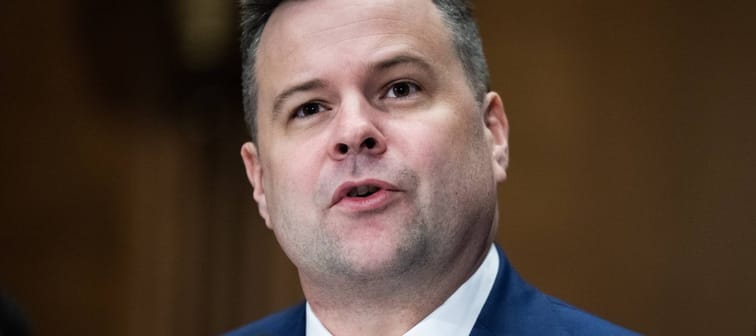Privatization speculation
Pulte’s bold moves have ignited speculation the Trump administration is pushing to privatize Fannie Mae and Freddie Mac. In a Truth Social post on May 27, Trump said he was “working on taking these amazing companies public,” but also promised the government “will keep its implicit guarantees.”
Both are government-sponsored entities (GSEs) and have been under federal conservatorship since the 2008 financial crisis in which they were bailed out. Together, the companies back 70% of the mortgage market, according to The New York Times. Skeptics believe privatization would make buying a home more expensive in the midst of a housing affordability crisis.
“It would mean that mortgage rates would increase — definitely,” Laurie Goodman, founder of the Housing Finance Policy Center at the Urban Institute, a think tank in Washington, D.C., said to the news publication.
Meanwhile, privatization could be a boon for both investors and the federal government. Depending on the structure of the deal, privatizing could generate billions of dollars in revenue for an administration that’s focused on cutting down wasteful spending across the board. Placing these companies in private hands would also free the government from potential future bailout obligations.
Following Trump’s recent post on Truth Social, however, Pulte told Bloomberg Television on May 29, “I don’t see any scenario where the president isn’t in control of Fannie Mae and Freddie Mac.” Previously, he told CNN that “it’s critical to ensure any discussion about exiting conservatorship needs not only to ensure safety and soundness but how it would affect mortgage rates.”
Invest in real estate without the headache of being a landlord
Imagine owning a portfolio of thousands of well-managed single family rentals or a collection of cutting-edge industrial warehouses. You can now gain access to a $1B portfolio of income-producing real estate assets designed to deliver long-term growth from the comforts of your couch.
The best part? You don’t have to be a millionaire and can start investing in minutes.
Learn MoreImpact on the housing market
Why do critics think privatizing these entities would increase borrowing rates? Fannie Mae and Freddie Mac don’t directly issue mortgages — rather they buy mortgages from lenders and package them for investors as securities. This maintains cash flow within the mortgage industry, allowing lenders to offer stable, affordable rates, experts say.
But if the federal government no longer backs these entities, their safety net goes with it.
“When the government is backing an entity's products and services, it helps to reduce risk, especially in the generating of loans,” Alex Beene, financial literacy instructor for the University of Tennessee at Martin, told Newsweek. “Removing it opens the door to higher interest rates for those looking to buy or refinance. It could also lead to more restrictive policies in even getting a loan, as lenders react more cautiously to some buyers.”
Increased rates could affect affordability, particularly for first-time buyers or those with modest incomes already stretched thin by soaring home prices.
As for homeowners with existing mortgages may also be affected if they ever want to refinance their loan. It may be less likely you can reduce your monthly payments if you’re struggling to get by.
The long-term impact of this housing shakeup remain uncertain, however, homebuyers and homeowners could serve themselves well by staying informed so they can navigate potential changes effectively.
Meet your retirement goals effortlessly
The road to retirement may seem long, but with Advisor.com , you can find a trusted partner to guide you every step of the way
Advisor.com matches you with vetted financial advisors that offer personalized advice to help you to make the right choices, invest wisely, and secure the retirement you've always dreamed of. Start planning early, and get your retirement mapped out today.








